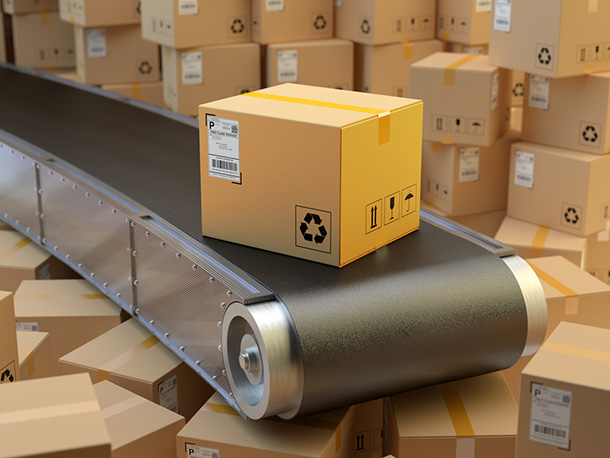
When a shipment is held up by customs, it can be incredibly frustrating, not only for the recipient of the package but also for the sender.
Customs officers and security can hold up shipments for several reasons, from basic inaccuracies in paperwork and declaration forms to unsafe packaging methods and specific national laws on tariffs and taxation.
Finding yourself with a held-up shipment and wondering “How do I contact customs about a package?” Here is our list of tips for effectively resolving the problem.
Why do shipments get held up?
1) Mislaid or inaccurate paperwork
The most common reason for shipments being held up at customs is inaccurate or poorly filled-out paperwork. People often forget to fill in basic information in customs forms, from the specific brand name of the product to the monetary value and serial number. Most important of all is a complete, clear address line for the destination of the goods.
Use a Hazmat Box to Ensure the Contents of the Package Are Safely Handled and Shipped
2) Paperwork being lost by the carrier or transporter
The loss of important customs documentation during travel is also a common issue that can lead to shipments being held up upon arrival. In particular, the loss of the bill of lading means not only the imposition of heavy demurrage charges on the containers in question, but a prolonged wait time for the receiver before the package can be delivered.
3) Gridlocked ports or depots
Sometimes the hold-up can simply be caused by a heavily congested terminal. Unsurprisingly, this is more common at certain times of the year than others: New Years and Christmas-time are far busier than mid-April.
Although the U.S. Customs Modernization and Informed Compliance Act has helped increase clearance and customs efficiency when it comes to shipments, you should still think carefully about when you want to ship goods. Consider adding a time-buffer for goods shipped at busier times of the year.

4) Incorrect and unsafe packaging methods
Inappropriate packaging, particularly when it comes to shipping hazardous materials, can lead to serious issues when it comes to internationally licensed regulations on transportation.
Order Custom Cardboard Boxes to Fit Your Exact Needs
Make sure you, or the supplier you’re buying from, are using a suitable shipping company that packages to UN-certified standards when it comes to fragile or potentially unsafe products. Packages like a hazmat box are ideal for a safe, seamless passage to anywhere in the world.
If you are shipping food or other perishable items, it is important to understand how the food industry ships across continents. If your items do not have the correct labeling or packaging, they can be quarantined by customs. Food items frequently quarantined include nuts, seeds and meat.
How do I contact customs about a package?
All countries’ governments should have a customs and border security website that allows you to scroll through frequently asked questions. If these answers fail to help with your particular enquiry, then look for an email or phone number to directly contact the customs team.
Who else can I contact?
1) Your third-party provider
Outside of contacting customs directly, it’s always a good idea to contact your third-party provider. This could be either the warehouse team who shipped off your product or the seller from whom you bought the product. They are the people in charge of some of the most important documentation for the shipment, so, if you suspect they’ve made a mistake, you should speak to them directly to resolve it.
You should also request a tracking code, either from the shipper or from the seller, which allows you to keep track of your shipment location.
If you think there’s a problem with the shipment process, the company that sent your shipment is a good place to start.
2) Your package carrier
If you’re worried your package or the crucial bill of lading may have been lost in transit, your package carrier is the best company to contact directly.
Larger carrier companies may be able to exert their commercial weight in order to force customs to accept your package if it’s being held up, so bear that in mind when you’re calling them.
How can I ensure my package won’t be held up at customs?
It’s important to be aware certain countries will place tariffs and border regulations on certain products in order to protect their domestic market. Legally, you will have to pay these taxes before your shipment is allowed through customs.
Before shipping your goods, search online to find out which countries are imposing tariffs and taxes on certain products.

In Conclusion
Whatever the reason your shipment is held up at customs, there are several measures you can take to not only ensure the situation is resolved but prevent similar issues from happening in the future.
For more information and advice on appropriate shipment packaging, or to find high-quality custom cardboard boxes or hazardous materials packaging to suit your shipping needs, explore our website.
[ad_2]
Source link


